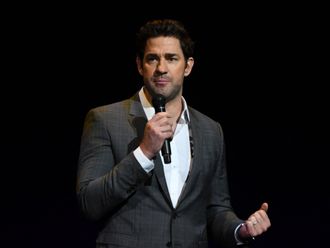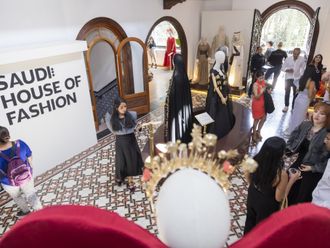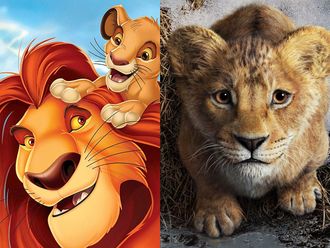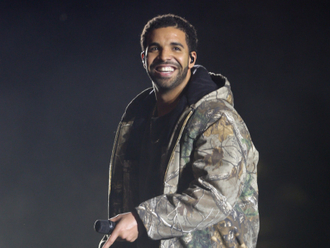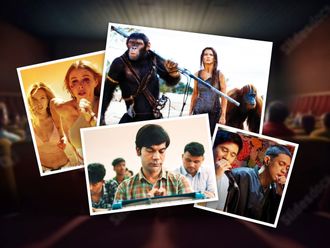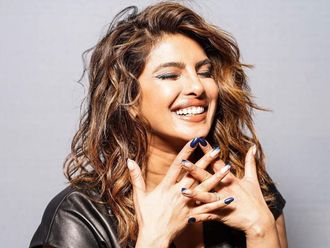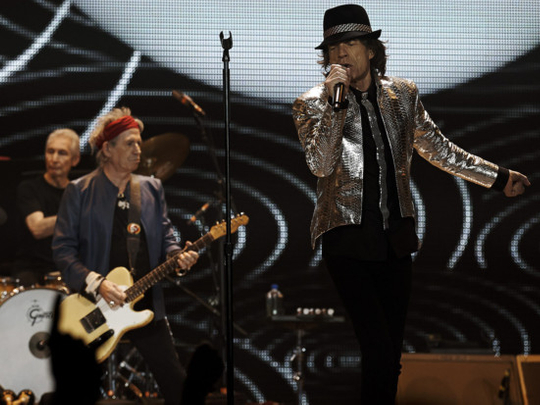
Dubai: Now in Abu Dhabi ahead of the Rolling Stones debut in the UAE, Mick Jagger says playing new cities is one of the things he loves most about performing.
“It’s great to be playing somewhere for the first time — I always love that — and I’m always been looking forward to coming here,” said the frontman in an interview on Wednesday night, ahead of the Rolling Stones debut UAE concert at du Arena on Friday.
Earlier that day, Jagger explored the UAE capital and toured the du Arena, where they kick off their 14 On Fire tour which then goes onto the Far East and Australia.
“I think it’s going to be a great show and I hope everyone is going to get out and have a real party and let their hair down and have fun,” said the 70-year-old, who credits a recent interest in ballet with keeping him in shape. “I know lots of friends of mine have had fun gigs and so we are really looking forward to Friday, so see you there.”
Having formed the band in 1962 and toured steadily over the last decades, Jagger should have a fair idea of what works with audiences — and his pick for getting the crowd started is, unsuprisingly, their 1981 US no 1, Start Me Up.
“Start Me Up would be the one that I would dedicate to [the Abu Dhabi audience]. I enjoy playing that one because usually it gets everyone going.” with UAE fans have been asked by the concert organisers Flash Entertainment to nominate their favourite song by the band, which they will play on the night.
Excerpts from the interview
Q. How is the UAE treating you? It’s your first time here, so far so good?
A. It’s going well, I’ve been in Dubai once very briefly for like one night, I didn’t see very much. When you do a show somewhere, you don’t necessarily get to see very much but I try to see as much as I can. We are staying out of town a bit. I went into town last night, had dinner with some people and saw lots around town.
Q. If you could choose, which song would you dedicate to your regional fans?
A. I don’t know how many fans we will get from which countries so it’s interesting to think of what the mix is going to be. I am looking forward to playing to a very different crowd than perhaps we are used to. It will be great fun.
Q. The du Arena is the biggest music venue in the region. We hear you’ve had a little walk round, what are your first impressions?
A. It’s going to be a good place. I went there yesterday [Tuesday] and today [Wednesday], I did some singing there as well. I walked into the back of the du Arena into the seating area that goes up the back, which is quite good, to see how the view is. It’s a good place. It’s not enormous — it’s quite big but it’s not massive, so it’s quite contained. The sound sounded pretty good in there with no people, which is a good sign, because there’s not a lot of reflective surfaces so it’s not echoing and difficult. I am looking forward to it, it’s going to be a good gig.
Q. Your rehearsals in Paris seem to have gone really well. Do you always prepare for new tours in the same way or is it different each time?
A. It can be different. It depends where we are and what kind of tour we’re doing and how long since we’ve played and so on. Obviously it’s very consistent in as far as we run thought a lot of numbers sometimes we have long rehearsals — sometimes we do 60-70 numbers, and depending on the stage it has to work on that. I do a bit of dance routine and try and get myself in shape. This stage is quite a big stage — it’s 60 metres across and there’s a runway, which is probably 40 metres. That’s quite a long way [laughs].
Q. Andy Warhol famously designed your Love you Live album sleeve in 1977. You were quite involved in that process and have been throughout the band’s career. Do you still throw yourself into all areas of the music-making process?
A. The first one he did was the Sticky Fingers cover; as you rightly say he did the Love you Live cover. I hope I am not too nit-picky and controlling about it. Charlie [Watts, drummer] and I particularly go through the poster art and the album art and the t-shirts to make sure it looks up to standard. [Laughs] Some things we throw things out. I think it’s good that it represents you. We’ve used a lot of very good people; as you started off by saying we used Andy Warhol. We try to keep an interesting standard to our artwork. I kind of enjoy doing that and I think it’s fun and represents the band.
Q. Great we’ll see Mick Taylor on Friday. How have the relationships within the current band developed since you all came together?
A. People have different relationships in the band, one-on-one and as a band together. Some people will have arguments, some people get on really well and go out to dinner together. It’s such a long relationship, so it’s obviously changed so much over the years. It would take me a very long time to explain it all to you and I probably wouldn’t be able to remember it because it’s so multi-faceted. We do enjoy ourselves when we get on stage and we still hang out together and we’re having a good time.
Q. How has the experience of touring changed for you and what is the motivation to continue?
A. Well everyone crammed into a Volkswagen van with a sandwich [to] staying three nights hotel in a suburb of Abu Dhabi. It’s obviously a lot more comfortable now; when you are 19 or 20 you don’t really care about it very much. In a funny way, it’s still very similar when you get on the stage. Part of the experience is very, very similar, but since the mid-’70s or even the end of the ’60s, it got a lot easier, it became more organised, not the kind of hit-and-miss business it was, with disorganised gigs and badly run shows. It became much more of an organised thing for us and for most people. Now this stuff is much more well-oiled than it used to be, so that makes it much more enjoyable. I suppose you do miss the kind of not getting to the gig on time because you have a flat tire. But it’s still a lot of fun.
Q. What would you have done if you hadn’t been a frontman?
A. In reality I was hoping to go into the diplomatic service, but I don’t know what I would have done. You get swept up in music and off on different tangents. You never really know what you would have been good at — or whether you would have been useless at it. The problem I think going into these show business careers — I had a whole bunch of time when I wasn’t really learning anything because you are so involved — you have to be — in your career and you lose curiosity about things going on around you or life. I realised that a long, long time ago, so you want to keep yourself intellectually stimulated. It’s a bit like being a footballer. It’s fascinating while you are on, but there’s a lot of downtime and you need to fill that up.
Q. Through the last 50 years of The Rolling Stones, what’s been the pinnacle for you, other than Friday night’s show of course?
A. I think playing Glastonbury last year. I’m not saying that was a high point of my career, but it was for me, recently, one of the big thrills. The audience responding, how many they were, how beautiful the weather was, how beautiful England is when it’s nice [laughs], all those things combined in this... I always say Glastonbury is the alternate Ascot, all these very kind of quite fashionable English people, all at once. There’s a real buzz in the crowd. That was a memorable gig.


